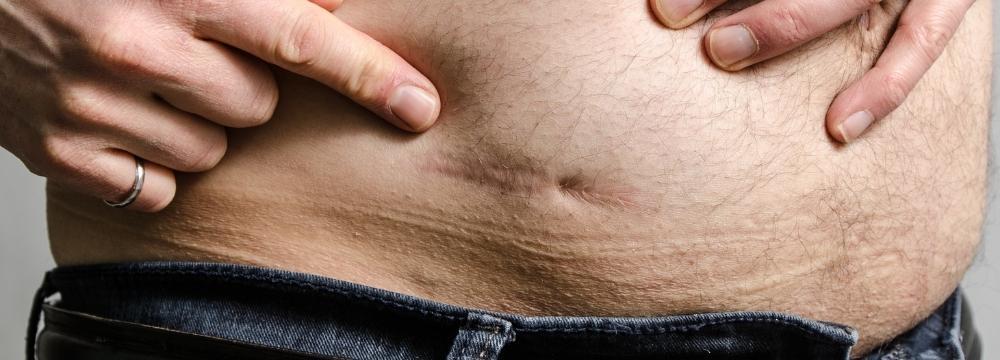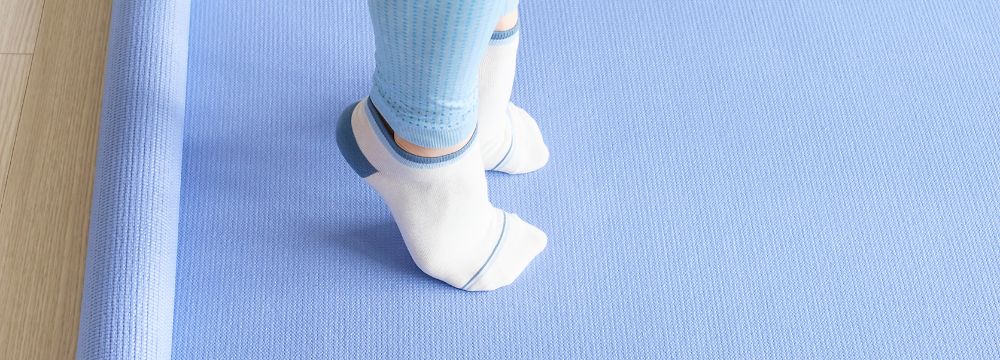
Scarring after any surgery is a concern. If you are considering a bariatric procedure or gastric sleeve, you may be wondering how big the scars will be after surgery and whether they will be visible longer-term. In this blog, Dr. Abbas will walk you through what scarring looks like, who is more prone to scarring, and tips and tricks to minimize them.
Hi everyone, it’s Dr. Abbas, and I wanted to talk to you a little bit about scarring. It’s a good topic to discuss and probably on your mind now that you are considering bariatric surgery. First, I want to mention that scarring is a natural part of the body’s healing process, and it is inevitable even in modern-day surgery. There have been techniques and technologies created to address scarring, but we don’t yet have a totally reliable scarless option for bariatric surgery. That said, we perform virtually all our bariatric procedures using minimally invasive techniques with or without robotic surgery. These techniques use tiny incisions and small medical devices to access the abdomen. Using these technologies has reduced scarring along with the risk of incisional hernias.
The Possibility of Open Surgery
Fortunately, open surgery is only required in the smallest number of patients and is no longer the standard of care in bariatric surgery. A large single incision was your only option 30 years ago, but technology has progressed incredibly fast. That said, we genuinely don’t know what we will find when we access your abdomen, and there is a minimal possibility, usually less than 1%, that the procedure needs to be converted to open surgery to address possible issues like adhesions and significant scar tissue, usually from previous surgeries. During your consultation, you will learn more about the possibility of conversion to an open procedure. Still, I can tell you that it’s been a very long time since I last had to perform an open surgery without a pretty good hunch in advance.
Single Incision Surgery
For a while, single incision surgery was an exciting prospect in bariatric and general abdominal surgery. The idea was that a single large incision would be made in the navel (belly button), and all surgical tools could be passed through that single hole to access the abdominal cavity. In theory, this sounds fantastic, but there were significant challenges, in practice. First, as a surgeon, we lose an incredible amount of dexterity, having only one access point. More complex procedures could not be performed using the single incision option. Secondly, while the scar was hidden in the navel, the access point was large enough that an incisional hernia became a genuine possibility. Most patients would prefer a few minor skin imperfections versus a higher chance of a follow-up surgery to fix a hernia.
But let’s get a little deeper into what your scars will look like and how best to manage them.
During your bariatric procedure, especially gastric sleeve, you will have four to five incisions in the abdomen. These incisions allow various medical devices, including the laparoscope or camera, to access the surgical area. The gastric sleeve also requires that we remove part of the stomach through the largest of these incisions, so we typically make this cut in the belly button to make it the least visible. The other incisions are approximately 5 to 8 millimeters in length. In other words, very, very tiny. They are so small that they typically do not need to be sutured closed. Simply gluing them together is enough. The incision in the navel is sutured closed; however, the navel’s structure and the suture’s depth make the incision practically invisible.
If you were to simply leave your incisions alone, you would notice that they will begin to fade quickly. You may not even see them over several months to a year. Remember that as you lose weight, your skin will be adapting as well, so this helps make them even less visible. Some of us want to ensure that the scars disappear as fast as possible and there are a few things we can do.
- Follow your post-operative care packet closely. Do not pick at your incisions and allow them to heal correctly without intervention. Only use topical creams and ointments if your bariatric surgeon has specifically told you to do so. The body is adept at healing, and if we leave it alone, we will have the best outcome.
- Exercise. You will need to exercise to lose weight anyway, but exercise also increases blood flow and helps with the healing period early on. After surgery, you will be walking quite a bit, but within a few weeks, you will be able to perform strenuous activities according to your post-operative plan.
- Drinking plenty of water is also essential to healing. Hydration can be very beneficial, giving us more physical and mental energy and improving the tone, elasticity, and general look of our skin.
- Keep your incisions out of the sun. No matter what surgery you have or if you’ve even cut yourself, keeping the wound out of the sun is essential as it heals. Exposure to the sun can make scarring visibly worse. If you must be in the sun, wear a UV-blocking swim shirt or apply and reapply high-quality sunscreen to minimize potential UV damage.
- Whenever you or a caregiver touches the area around the wound. For example, if you need to change dressings – wash your hands thoroughly with antibacterial soap. If you need to change your dressings, use clean, sterile dressings and don’t reuse old ones. Why? Infection. While proper surgical site care minimizes infection, not following your post-op instructions can allow bacteria to enter the wounds. Infection can make a small incision gnarly.
- Avoid tobacco. Smoking, vaping, and other tobacco-related habits can reduce the ability of your body to heal after surgery and increase the risk of infection. You may remember that you were told to stop smoking at least 6 to 8 weeks before surgery, and frankly, there is nothing but negative consequences to smoking after surgery as well.
Internal scarring
Of course, when we think of scarring, we primarily think of the visible scars outside our bodies. However, the areas in and around the surgical site also scar internally. This is perfectly normal and nothing to be concerned about. That said, following proper diet and exercise regimens after surgery can help your body heal better and more quickly. Scar tissue within your abdomen will form, but this is only a concern if you have further abdominal surgery. Even then, it is perfectly normal and expected.
What if I Keloid?
Some of us have more keloid-prone skin. In the early days after bariatric surgery, there’s not a whole bunch you can or should do about a keloid. We certainly do not want you to use scar-reducing creams or treatments while the incisions heal. However, once you are fully healed, you can speak to our office about various creams and supplements, onion extract, for example, if your scars are unsightly. Be mindful that there are no proven methods to eliminating keloid scars without medical intervention; we preach patience in giving your body a chance to heal before you jump into medical scar treatments.
The Bottom Line
It’s important to remember that bariatric surgery is not a cosmetic procedure, and the goal is to improve your health by eliminating many of the obesity-related diseases caused by excess weight. However, we are also attuned to our patient’s needs and wants and know that a bariatric procedure’s cosmetic result is significant. As such, we want to reassure you that the minimally invasive nature of modern bariatric surgery, whether performed robotically or not, is such that your scars will likely be no more than an afterthought within a few months after surgery. Even more importantly, the cosmetic benefits of exceptional weight loss over the first year or two will be far more gratifying than the relatively minor issue of tiny scars.
We look forward to seeing you in our office and answering any other questions about your decision to have bariatric surgery. Just know that simply considering this surgery is a giant leap forward, and we congratulate you on seeking out help.









